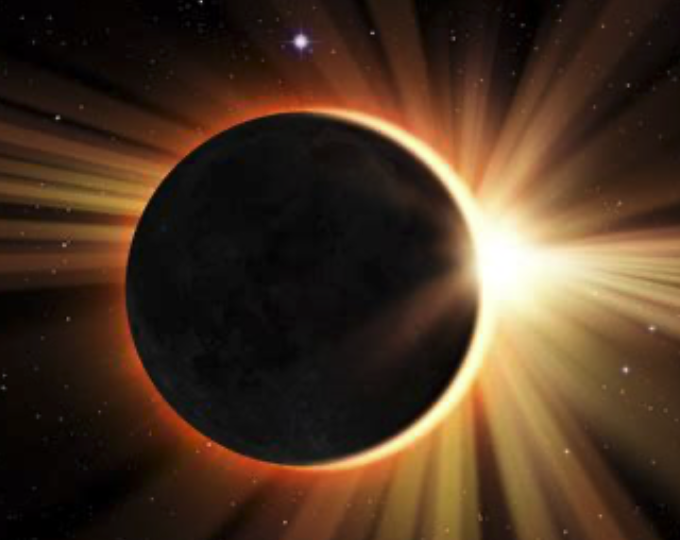 For a few minutes on Monday, the solar eclipse took our eyes off our problems, ourselves, our plans and we looked to the sky. None of us were afraid, however. We knew what was happening. It had been explained ad nauseam on every electronic portal available. But for the Syrians, during the first recorded eclipse on earth in 1345 BC it was a shock.
For a few minutes on Monday, the solar eclipse took our eyes off our problems, ourselves, our plans and we looked to the sky. None of us were afraid, however. We knew what was happening. It had been explained ad nauseam on every electronic portal available. But for the Syrians, during the first recorded eclipse on earth in 1345 BC it was a shock.
A historian of the time noted that the sun had been "put to shame." In general, ancient people believed eclipses were signs of of something evil to come: A plague, a war, the death of a king, or worse yet, that the sun was dying. The ancient Greek word for eclipse means "abandonment," because they believed the sun was abandoning the earth. And in 585 BC, the warring factions in Greece stopped the brutal process of slicing and dicing each other with swords because of a mid-battle eclipse and peace was restored.
The few minutes of darkness was a signal to evaluate choices and take a new path. I was lucky enough to be in a protected nature area close to the path of the total eclipse on Monday. Surrounded by wildlife, the trees buzzed with cicadas and bees, birds singing and leaves rustling in the breeze. But as the eclipse proceeded the noise stopped. The breeze stopped. It was stunning. The silence was overwhelming, as if all of God's creatures were paying attention to this heavenly event.
Perhaps we too could pay more than passing attention to this Monday's historic eclipse. Perhaps we could take a tip from ancient mankind and see it as more than a media event, but rather a signal from heavenly places to examine ourselves for negativity, for selfishness, for lack of empathy, for taking offense too easily, for judging others, for a lack of gratefulness, for bad habits. Self-examination is not for the faint of heart, but as we work through the darkness, inevitably, the illumination of enlightenment shines through our efforts to improve.
We are here for just a short time, let us use it well,
Nancy








